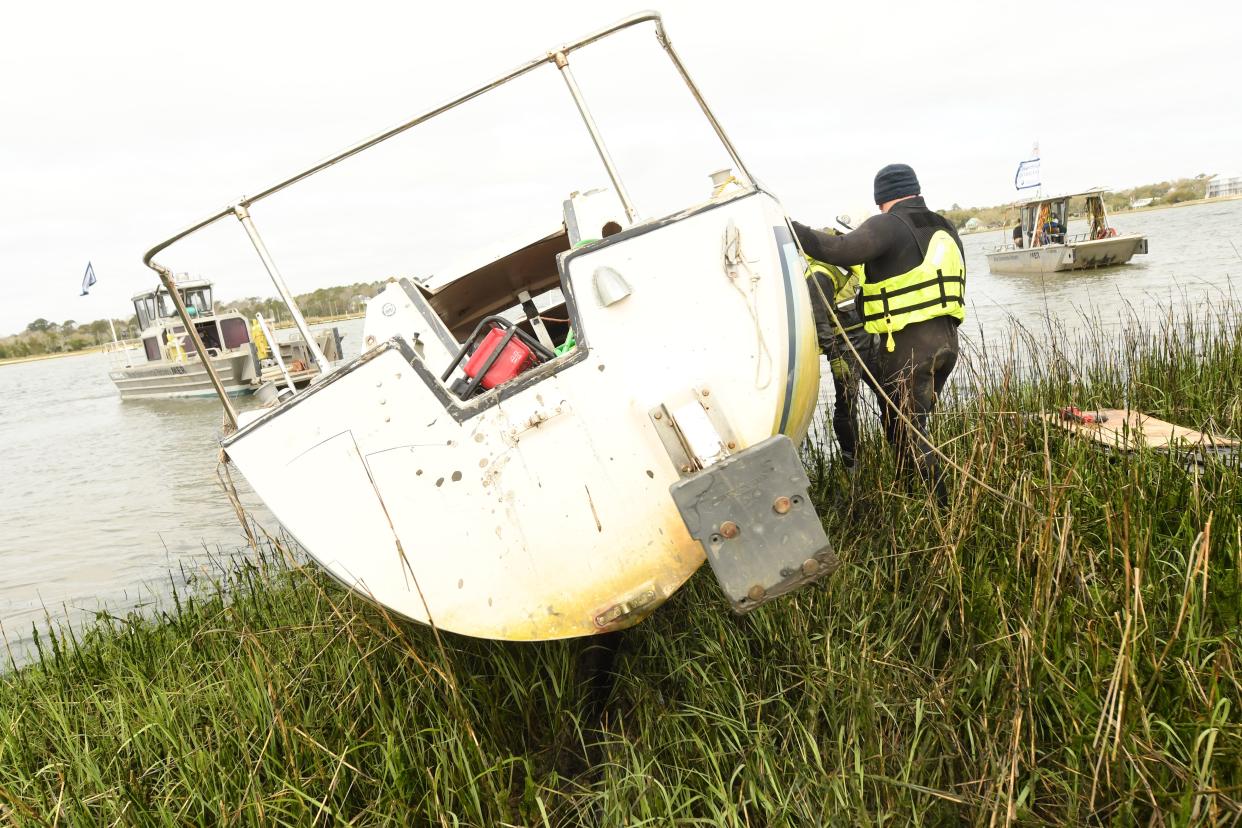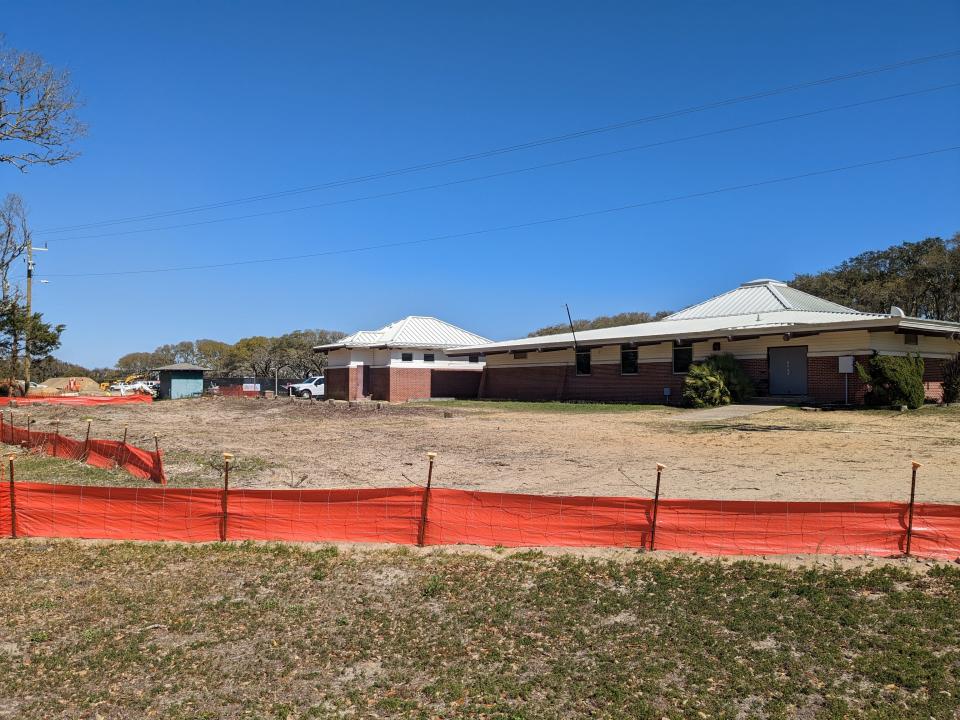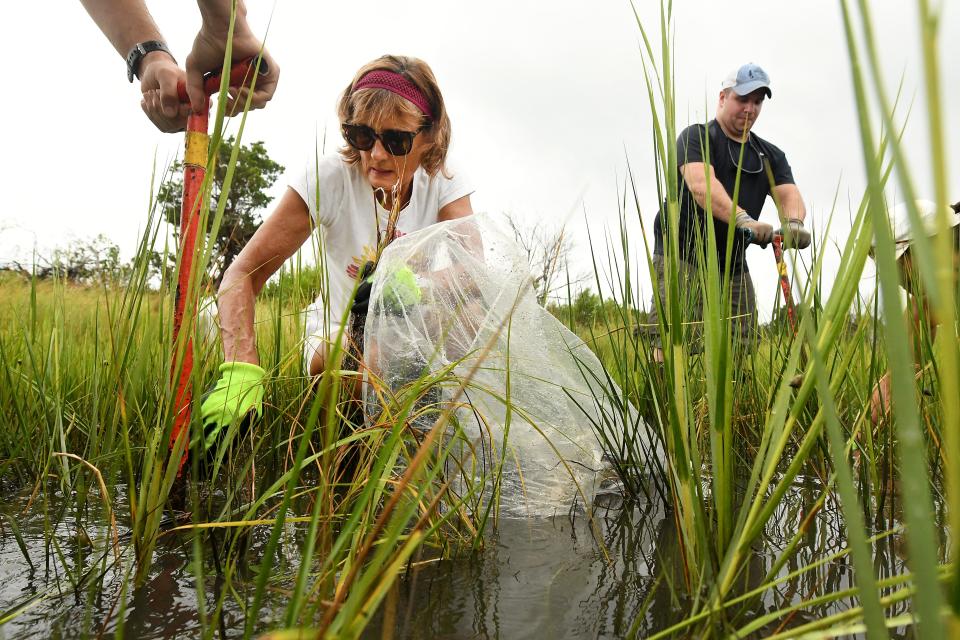From Venus' flytraps to wetlands, what 4 proposed bills could mean for the Wilmington area

Most of the legislation still has a ways to go until it passes through the N.C. General Assembly. And there's a chance some of the proposed appropriations could be added to the state budget document that's working its way through committees in the N.C. House and Senate.
Then there's the ticking clock, since many bills − including some on this list − have been proposed before only to die in committee when the session ends and one or both chambers have yet to act on them.
Oh, and legislators are famous for rewriting language or adding -- and sometimes subtracting -- sections of bills at the last minute.
Still, some proposed legislation in Raleigh could have a major impact on attractions and the environment in Southeastern North Carolina. And one bill could even help Wilmington-area residents promote one of its smallest native plants with a larger-than-life reputation.
Don't drive without Wilmington's favorite plant
There's a new push to get a specialized license plate for arguably the world's most famous carnivorous plant that also happens to only grow within roughly 70 miles of the Port City.
House Bill 734, if passed, would prompt the N.C. Division of Motor Vehicles (DMV) to offer the plate that would be emblazoned with an artist's rendering of a field of flytraps, including with one about to eat a fly. The words "Home of the Venus Flytrap" would run across the top of the plate.

The plate, like other specialty plates, would cost vehicle owners $30, with $20 of that going to the N.C. Botanical Garden Foundation to support plant conservation and research efforts.
Like other special plates, the DMV would only mint the new license plate if enough people expressed an interest in buying one. Previous efforts to get a flytrap plate issued have secured the minimum 500 pre-orders, but have become bogged down in committees in Raleigh and not won legislative approval before the session ended.
According to the N.C. General Assembly website, the bill is currently in the House Transportation Committee, where it has been since April 19. Among the local sponsors of the license plate bill are state Reps. Frank Iler, R-Brunswick, and Ted Davis Jr., R-New Hanover.
PROTECTION EFFORTS Keeping Venus' flytrap poachers at bay
Wetlands could lose protections
A proposal to restrict how North Carolina defines wetlands has environmentalists worried that the move would heap more pressure on the state's hard-pressed wetlands and cost important habitat and flood-control areas.
Under Senate Bill 582, also known as the N.C. Farm Act of 2023, isolated wetlands that aren't connected to other waterways and many areas that aren't wet all year-round would lose state protection.
The proposed move mirrors steps underway at the federal level to roll back wetland protections. Some developers, property owners and farmers say the move is needed because the federal Waters of the United States rules, also known as “WOTUS,” have been too broad and ambiguous and infringe on private property rights and development opportunities.
A challenge to the WOTUS rules is now before the U.S. Supreme Court. The proposed bill in Raleigh would prompt state regulators to follow the federal government's definition of wetlands − removing protections for nonjurisdictional wetlands that North Carolina currently regulates.
Southeastern North Carolina is considered a hotbed for wetlands, with many coastal areas full of pocosin, freshwater and saltwater wetlands along with several Carolina Bays, like Lake Waccamaw. Eastern North Carolina also has suffered from several severe flooding events in recent decades, headlined by Hurricanes Florence in 2018 and Matthew in 2016.
The bill is currently in the Senate's Judiciary Committee.
More money for Fort Fisher attractions?
While Fort Fisher might no longer be in his district, Rep. Ted Davis certainly hasn't forgotten his old territory.
The Wilmington Republican has submitted a bill that would see the state give the N.C. Aquarium at Fort Fisher $10.5 million for the facility's renovation project. The proposal comes after Davis had previously helped secure $20 million for the upcoming project.
The last time the aquarium was renovated and expanded was in 2002, a project that was delayed several years due to funds being redirected toward recovery efforts after Hurricane Floyd battered Eastern North Carolina in 1999.

The legislation, House Bill 710, is currently in the House Appropriations Committee. Davis said he also had funds to support the expansion added to the House budget bill, although that's subject to change as the budget proposal moves through the General Assembly.
The move to help the aquarium comes as Davis is also hoping to secure more funds for the adjacent Fort Fisher State Historic Site. The Civil War-era fort is in the midst of a $22 million renovation project, which includes a new visitors center, funded by the state. Phase 2 of the project would include reconstruction of earthworks and cost roughly $3.57 million, with the "Friends of Fort Fisher" contributing $1 million to the project.
Davis has submitted a bill that would see the state supply $2.9 million to help finance the next phase of the fort's renovations. That bill, HB 297, is listed as in the House Appropriations Committee where is has been since March 8.
"To me, these projects will make these attractions even better and give a reason for even more people to come and visit them," Davis said, noting that the Civil War site at the southern tip of New Hanover County is already the most popular historic site in the state.
MORE Restoring history: More state funds could soon help rebuild part of Fort Fisher
More living shorelines and oyster reefs
A proposed bill in the N.C. Senate would see more state funds coming to the coast for a host of environmental initiatives.
Senate Bill 646 would see the state give $2 million to the N.C. Coastal Federation annually for living shoreline projects. Living shorelines are shoreline stabilizing structures that are built with natural features like sea grasses, oyster shells and wood instead of bulkheads or concrete. According to the National Oceanic and Atmospheric Administration (NOAA), benefits of living shorelines include purifying water, buffering floods, reducing erosion, storing carbon and creating habitat for a host of marine critters. They also offer the benefit of being able to respond to rising sea levels, something hardened structures like bulkheads can't do.
Under the bill, North Carolina also would give the federation $800,000 to support the federation's mariculture facility in Carteret County, $500,000 to restore and protect oyster habitat in Onslow County's Stump Sound, and $500,000 every year to remove derelict vessels and other debris from the state's coastal waters.
MORE Living shorelines: Along the N.C. coast, preparing for rising waters with natural remedies

The proposed bill would also prohibit the use of foam in over-the-water structures like docks and walkways. Studies have found microplastics from the foam, which can break down easily during storms or after being weathered for a long period of time, is a major contributor to plastic pollution in coastal waters.
Among the bill's primary sponsors is state Sen. Michael Lee, R-New Hanover. On April 6 the bill was referred to the Senate's Appropriations Committee.
Reporter Gareth McGrath can be reached at GMcGrath@Gannett.com or @GarethMcGrathSN on Twitter. This story was produced with financial support from 1Earth Fund and the Prentice Foundation. The USA TODAY Network maintains full editorial control of the work.
This article originally appeared on Wilmington StarNews: Fort Fisher, wetlands, Venus' flytraps subjects of bills in Raleigh

